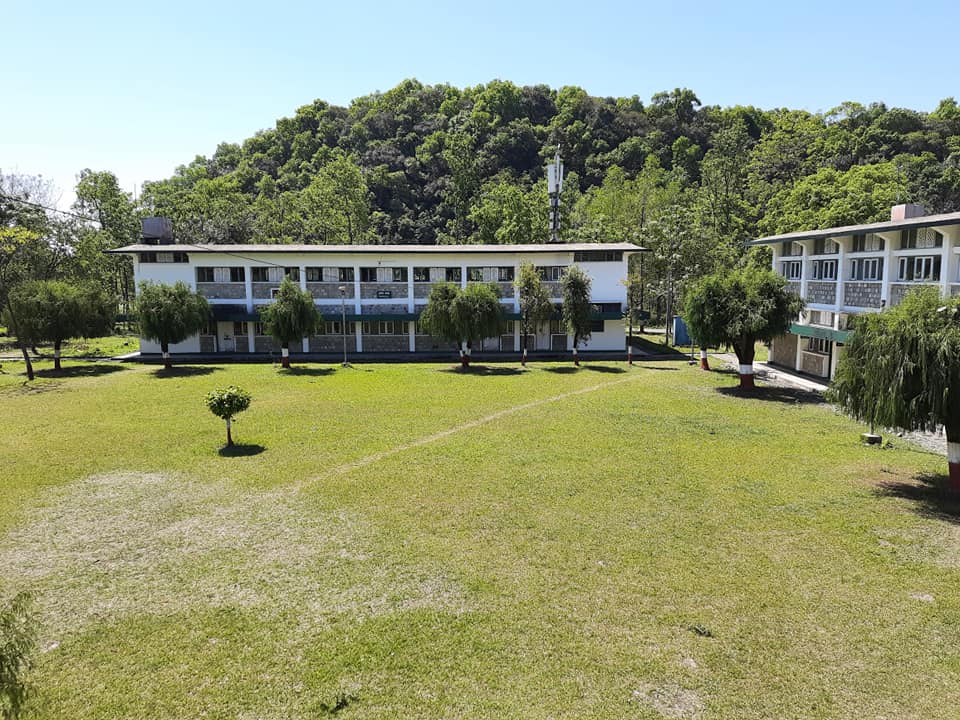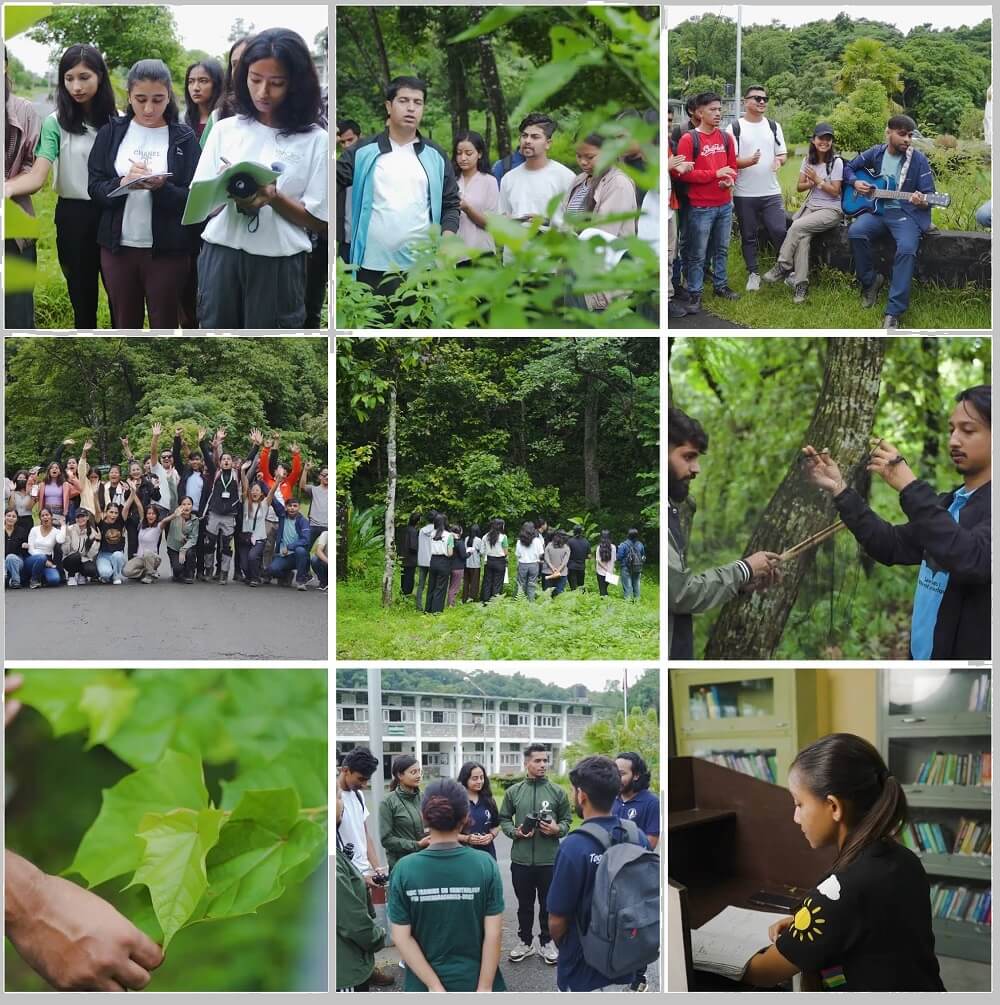Overview
The Institute of Forestry, Pokhara Campus is often seen as the home of forestry education in Nepal. Nestled in Pokhara, it has become a place where students learn not only about forests but also about the responsibility that comes with managing natural resources. The campus offers a Bachelor of Science in Forestry (BSc Forestry) and a Master of Science in Forestry, both carefully built to give students real experience alongside classroom learning.
For those who want to take their studies further, there are also doctoral programs in forestry. These focus on advanced research and specialized skills, preparing graduates to work in leadership, research, and policy-making roles in forestry and natural resource management.
The story of the campus stretches back many decades. Although it officially became the Central Campus of the Institute of Forestry under Tribhuvan University in 1981, its roots go much deeper. Nepal’s first forestry institute was founded in 1947 at Singh Durbar in Kathmandu. From there, it moved to Suping (Bhim Phedi) in 1957, then to Hetauda in 1965, before finally being brought under Tribhuvan University in 1972. In recognition of its long-standing work in education and research, the Pokhara Campus was awarded Quality Assurance Accreditation (QAA) by the University Grants Commission (UGC) Nepal in September 2022.
Over the years, the campus has introduced and adapted its programs to match the country’s needs. Earlier, it ran a two-year Technical Certificate in Forestry (TCF) and a three-year bachelor’s program, which was extended to four years in 1995. The TCF program was later phased out. In 2004, new master’s courses were added in Forestry, Watershed Management, Natural Resource Management and Rural Development, and Community Forestry. Today, the campus also offers doctoral study through the IOF Dean’s Office.
Along with degree programs, the campus regularly organizes short-term training and workshops, welcoming participants from across Nepal and abroad. These programs help students, researchers, and professionals share knowledge and strengthen their practical skills in forestry and related fields.
What makes the IOF Pokhara Campus stand out is its blend of history, education, and research. For students, it is not only a place to earn a degree but also a community where they grow as professionals and prepare to take responsibility for Nepal’s forests and natural resources.

Academic Programs
IOFPC offers a two-year Technical Certificate in Forestry (TCF) and a Bachelor of Science in Forestry (B.Sc.F), initially a three-year program, later extended to four years in 1995. Master of Science (M.Sc.) programs in Forestry, Watershed Management, Natural Resource Management, Rural Development, and Community Forestry began in 2004. IOFPC also offers a Doctoral Program in Forestry.
Departments
IOFPC has six departments, each led by a head of department, to efficiently run academic programs. These include the Department of Social Forestry and Forest Management, Forest Products and Engineering, Park Recreation and Wildlife Management, Watershed Management and Environmental Science, Silviculture and Forest Biology, and Basic Science and Humanities.
Mission and Objectives
IOFPC is dedicated to providing quality education in forestry and natural resource management, producing skilled professionals. It aims to be a Center of Excellence in forestry education with programs that address national and international needs in forestry and related fields.
Teaching and Research
IOFPC maintains creative traditions through well-structured educational programs that promote effective teaching, learning, and research. The campus also conducts short-term national and international training and workshops in forestry and related subjects.
Facilities at IOFPC
IOFPC offers various facilities to enhance student learning:
-
Library: A well-stocked library with resources on forestry, natural resource management, and allied fields.
-
Laboratories: Well-equipped labs for hands-on learning in forest products and engineering, watershed management, silviculture, and more.
-
Cafeteria: A cafeteria providing hygienic meals at affordable prices.
-
Hostel: Comfortable accommodation with modern amenities, including Wi-Fi and study areas.
-
Healthcare: A healthcare center with 24/7 medical staff for basic medical needs.
-
Auditorium and Conference Hall: Facilities for seminars, workshops, and academic events.
-
Sports Facilities: Cricket ground, football field, volleyball and basketball courts to encourage physical fitness.
-
Forest Products Museum: A museum showcasing various forestry products.
-
Internet: Wi-Fi connectivity across the campus for academic use.
-
GIS/IT Lab: A lab equipped with the latest GIS software and hardware for practical learning.
Life at the Institute of Forestry, Pokhara

Courses Offered
MSc Forestry:
Trains skilled professionals for global forestry challenges. Graduates can work in government, NGOs, and private sectors, manage forestry enterprises, or offer consultancy services. The program also prepares students for scientific research in forestry.
MSc Watershed Management (WM):
Prepares advanced professionals to lead integrated watershed management. The program focuses on soil and water conservation, land productivity, and sustainable natural resource development.
MSc Natural Resource Management and Rural Development (NRMRD):
Produces competent managers for changing environmental conditions. It combines theoretical and practical knowledge in conservation and development.
MSc Community Forestry (CF):
Specializes in community-based forest management, producing professionals who can manage community forestry and contribute to academic research.
BSc Forestry:
A four-year program with seven semesters of coursework and an eighth semester dedicated to research or internships. Students are assigned advisors to guide their research or internships.
Contact the Institute of Forestry Pokhara Campus's administrative office for detailed information on the course, including fees, scholarships, facilities, counseling, eligibility criteria, etc.













You need to login to comment.